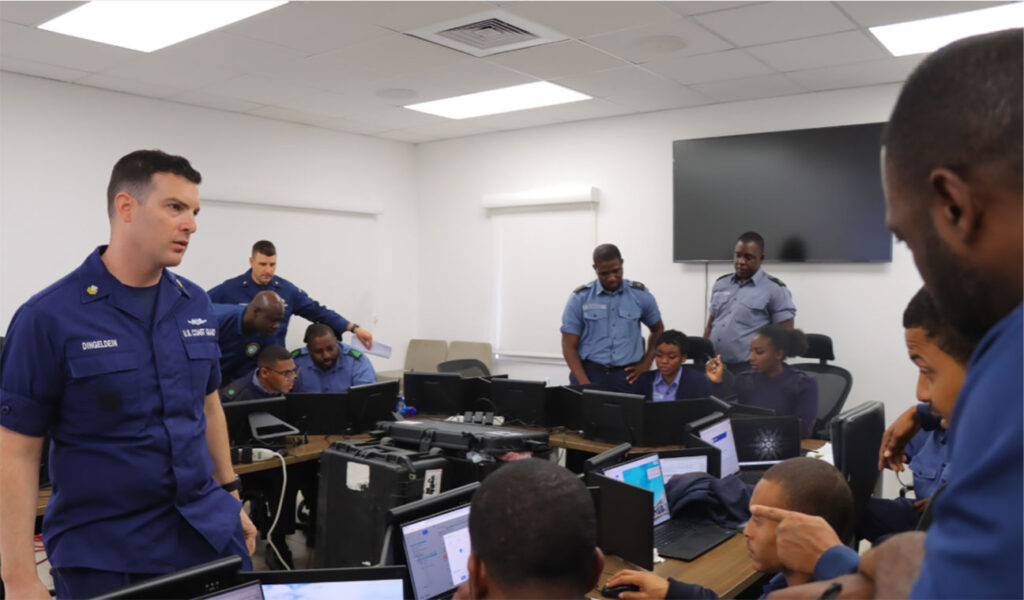Royal Bahamas Defence Force personnel train in SAROPS with members of the United States Coast Guard to strengthen maritime and search and rescue capabilities. MARINE SEAMAN DANTE FORBES/RBDF
THE WATCH STAFF
Members of the Royal Bahamas Defence Force (RBDF) underwent intensive training in the Unites States Coast Guard (USCG) Search and Rescue Optimal Planning System (SAROPS) in April. The Coast Guard uses the SAROPS software system for maritime search planning.
Conducted by the USCG National Search and Rescue School, the training at the Davy Rolle Operations Command Center at the Coral Harbour base from March 31 to April 11 brought together members of key RBDF units, including the Operations Command Center, Harbour Patrol Unit, Air Wing and Sea Training Department. SAROPS was developed by the USCG to strengthen the odds of success in maritime search and rescue (SAR) operations. By integrating real-time environmental data, vessel drift modeling and probability theory, SAROPS generates the best search strategies, identifies probable search areas and allocates resources for efficiency. The software can handle multiple scenarios and adjust data based on previous search results.
The training covered system interface, environmental data input, SAR case creation and management, and simulation analysis. Royal Bahamas military officials view the training as critical to enhancing the RBDF’s ability to coordinate and execute effective SAR missions. The 12-day course also highlighted the RBDF’s commitment to interagency cooperation.
In testimony before the Senate Armed Services Committee on February 13, 2025, Gen. Gregory M. Guillot, commander of U.S. Northern Command (USNORTHCOM) and the North American Aerospace Defense Command, said: “USNORTHCOM’s regional security cooperation relationships remain a critical element of the command’s missions. USNORTHCOM’s military partnerships with Canada, Mexico and The Bahamas enhance our own homeland defense while building the capacity of those partners to operate and communicate with U.S. forces. Those relationships are vital to countering competitor influence and presence in the Western Hemisphere while improving intelligence sharing, border security and domain awareness.
“Decades of information sharing, combined exercises, and routine direct engagement between USNORTHCOM senior leaders and our Canadian, Mexican and Bahamian military counterparts has brought North American defense cooperation to a historic high point,” Guillot testified.

